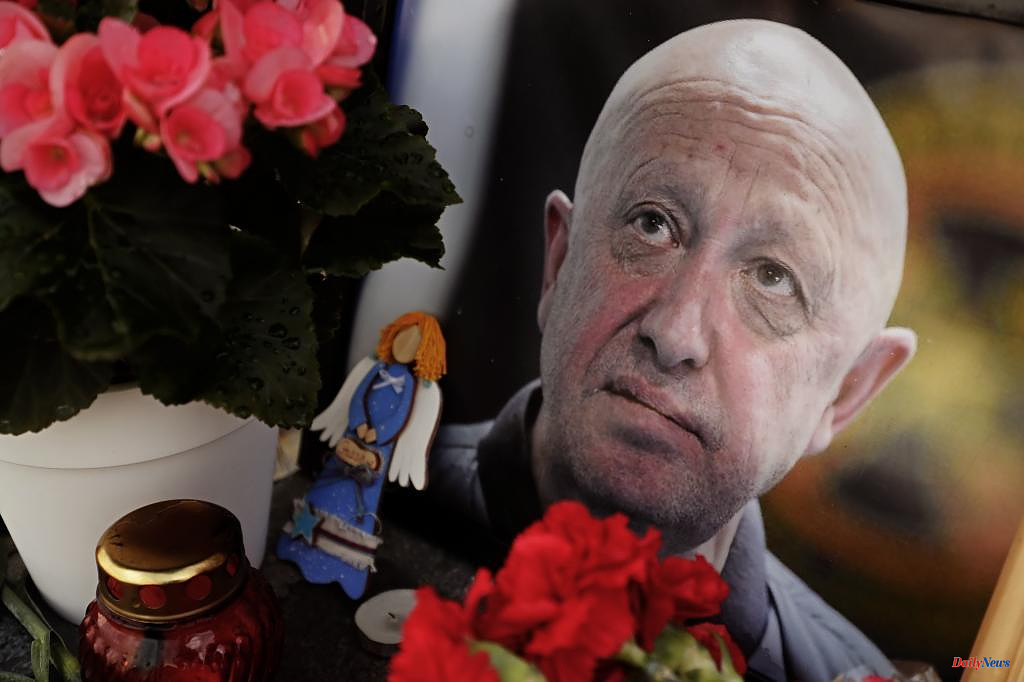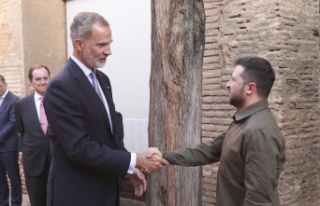They didn't knock him down from the outside, but from the inside. It is the theory that Vladimir Putin has put into circulation about the death in an air disaster of the man who challenged his army, Evgeni Prigozhin.
The Russian president suggested Thursday that the plane crash that killed Wagner's mercenary chief in August was caused by hand grenades that detonated inside the plane. He thus rules out a missile attack, the theory that points to responsibility of the Ministry of Defense, Prigozhin's main enemy in those days.
The private Embraer plane in which Prigozhin was traveling to St. Petersburg crashed in the Tver region, north of Moscow on August 23. All 10 people on board died, including two other top Wagner commanders, Prigozhin's four bodyguards and a three-person crew.
At a meeting of the Valdai Debate Club in the Black Sea resort of Sochi, Putin suggested that the plane was blown up from within, saying that the head of Russia's investigative committee had informed him a few days ago: "Fragments were found of hand grenades in the bodies of those killed in the accident.
American officials said shortly after Prigozhin's death that they believed he had been shot down. Putin now denies this: "There was no external impact on the plane; this is already an established fact."
Prigozhin's death has disappeared from the Russian media for this month and a half. The Kremlin has ruled out an international investigation. Crash investigators have not yet publicly reported the cause.
Putin did not provide evidence or give much more explanation. It is not clear what the motive for this Wagnercide would be: revenge from within, a fight on board or rather some type of attack with more homemade means. The grenade thesis is valuable for the Kremlin because it opens the spectrum and blurs the role of the State, which seemed the most logical from the beginning, especially after Putin called Prigozhin a "traitor" for his June mutiny.
Putin did not explain how several grenades could have been detonated on board, but said he thought investigators were wrong for not conducting alcohol and drug tests on the bodies of those who died in the crash, especially given that found large quantities - "kilos", the president said - of cocaine in Wagner's office in St. Petersburg. Putin did not explain what role cocaine plays in the fact that a plane falls without part of its tail from 8,000 meters high.
The Prigozhin mutiny posed the biggest challenge to the Russian government since Putin came to power in 1999. Western diplomats see it as evidence of tensions on Russia over the war in Ukraine.
Speaking about Wagner, the Russian president said that private military companies do not exist and never existed in Russia, because there is no law on mercenary companies. "It was a journalistic name: a private military company," Putin said, ignoring that after the mutiny he detailed the million-dollar payments from his government to Wagner. The president noted that the investigation into the crash of Prigozhin's private plane has not yet been concluded.
Putin took the opportunity to point out that several thousand Wagner fighters have signed contracts with the Armed Forces of the Russian Federation. Moscow no longer had any use for Prigozhin, but he wants to retrain his soldiers.












